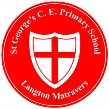Religious Education (R.E.)
Live Learning: Love Learning.
Enabling our community to live life in all its fullness. John 10:10-16
Religious Education at St. George’s plays an important part in reflecting and conveying the distinctively Christian character of the school. We follow the Dorset Agreed Syllabus for RE, where ‘pupils learn to weigh up the value and wisdom of different religions and worldviews to develop and express their own insights in response. RE develops in pupils the aptitude for dialogue so they can participate positively in our society with its diverse religions and worldviews. RE enables pupils to articulate clearly and coherently their personal beliefs, ideas and values, while respecting the right of others to differ.’
Intent
We use both Understanding Christianity and RE Today to plan the sessions and ensure teaching and learning reflects aspiration and is high quality. Topics begin with big questions and children are encouraged to think deeply about their opinions, knowledge and understanding when exploring the concept of faith.
Implementation
Our RE lessons are based on a big question each half term, we make connections and collect clues to help us to answer the big question. In our RE lessons we develop our learning as Theologians (when thinking to make connections in sacred texts, core concepts and belief), Philosophers (when thinking deeply about puzzling questions which can include our own world view) and Sociologists (when thinking about how people live their lives and how a belief is shown in practice as part of a community). These are some of the lenses which help us to understand the world around us and consider viewpoints different to our own.
We use individual work books to record our work, except in EYFS, where a shared floor book shows the range of learning activities that have taken place in RE with our younger children. Religious Education is taught once a week and we use Journey Days to focus on a particular area of learning, where the whole school family comes together to share in this learning experience through different activities.
The children study the major world religions of Christianity, Judaism, Islam, Hinduism and Sikhism, aiming to develop their knowledge and skills to be able to connect, reflect, evaluate and apply their learning to their own growing understanding of the different religions and beliefs. We also introduce the children in KS2 to Humanism, as an example of a non-religious worldview.
We may also consider different religions alongside global learning and interfaith projects. RE lessons often include circle time, critical thinking and opportunities to unpack concepts through drama, art and music. Our RE helps us to learn about diversity in the UK and around the world.
Impact of RE Curriculum
Through our sessions, children should be able to access their key words to help them to discuss, recall knowledge and understand religion in society. We use ‘Flashback 4s’ to help the children remember key learning as they progress through the school. Specific skills for Religious Education will have been developed including;
EYFS/KS1
- retelling religious stories
- recognising symbols
- sharing opinions
- asking questions
- responding positively to differences and similarities
KS2
- making connections between words of wisdom
- can reflect on their own values and those of a believer
- can understand different ways of life and ways to express meaning
- can ask and have the skills to answer, ultimate and ethical questions from their viewpoint and that of a believer
- discuss issues and support the development of community cohesion whilst challenging prejudice
Our ongoing skills development include Critical Thinking, Religious Tolerance, Investigation, Interpretation, Reflection, Evaluation, Analysis, Synthesis, Application, Expression, Self-Understanding, Communication, Problem Solving

Whole-school learning journey on the topic of ‘Creation’.




